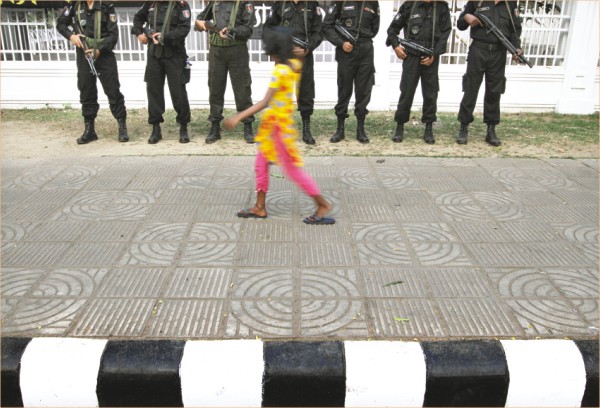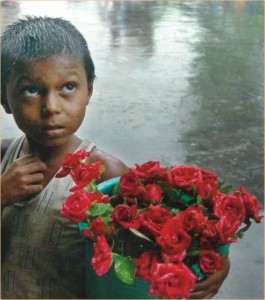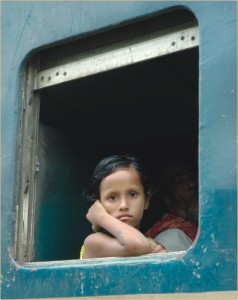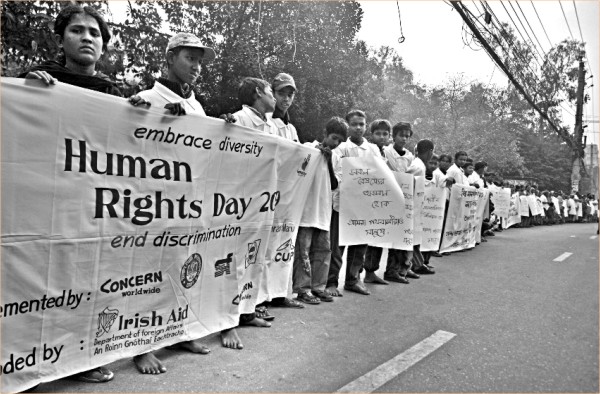 |
||||||||||||
Working democracy: A stocktaking--Dr. Kamal Hossain Politics invading culture--Serajul Islam Chowdhury Bangladesh at 40: Addressing governance challenges -- Barrister Manzoor Hasan, Dr. Gopakumar Thampi and Ms. Munyema Hasan Party government and partisan government-- Dr. Mizanur Rahman Shelley Is rule by the majority enough?-- Mohammad Abu Hena The rubric of good governance --Mohammad Badrul Ahsan For a human rights culture -- Professor Dr. Mizanur Rahman For an independent Human Rights Commission-Sayeed Ahmad Of this and that -- Sultana Kamal Tribalist corruption-- Mohammad Badrul Ahsan Fighting terrorism: Enforcement challenges--Muhammad Nurul Huda Combating corruption: People are watching-- Iftekharuzzaman E-government and its security-- Dr. M Lutfar Rahman CHT Accord: Implementation a half empty glass -- Devasish Roy Wangza Citizenship and contested identity: A case study -- Bina D'costa and Sara Hossain Forty years of "yes ministership"-- Mahbub Hussain Khan Politician-bureaucrat interface-- AMM Shawkat Ali Impartial bureaucracy: A fading dream-- Nurul Islam Anu Forty years... and diverse governments--Syed Badrul Ahsan Protect environment, save the nation--Morshed Ali Khan
|
||||||||||||
 Photo: Amirul Rajiv |
||||||||||||
For an independent Human Rights Commission Sayeed Ahmad On 26 December 2010 the Bangla daily Prothom Alo unveiled the Home Ministry's investigation report on the death of Kaiser Mahmud Bappi and Mohiuddin Arif. The report accused members of Rapid Action Battalion (RAB) of killing the two men. Kaiser Mahmud Bappi was a model and actor. Tipped off with wrong information from its sources, RAB 1 arrested Bappi from his Rampura residence on 9 October 2009. They were in fact looking for an alleged terrorist named Kamrul Islam Bappi. Kaiser Mahmud Bappi was killed that night and RAB claimed that he had been killed in'crossfire' between RAB and Bappi's companions. The investigation report indicated that Kaiser Mahmud Bappi had been arrested on the basis of wrong information provided by RAB's sources and he had been killed whilst in RAB custody. On the other hand Arif had been arrested by RAB 4 and Pallabi police from the Mirpur area on 24 January 2010. Pallabi Thana police later claimed that Arif was trying to escape and got wounded in his leg and later died from that wound. But the investigation committee's findings indicated that Arif had died after severe torture. These reports have brought the so-called elite forces under scrutiny. This is the first time the relevant government ministry which is also the controlling authority of RAB acknowledged in their report that RAB had done something wrong. After the formation of RAB in 2004, human rights activists were highly critical for the extra judicial killings carried out under the label of 'crossfire'. According to information given by RAB, 729 people have been killed in 'crossfire' till November 2010. Other sources claim the number is over a thousand. Interestingly, the Home Ministry conducted these investigations in response to the demand of the National Human Rights Commission (NHRC) and no doubt this has created a huge impact.
The long story to get Bangladesh NHRC Demand for an independent NHRC in Bangladesh was being raised by the citizens groups almost since the independence. As a result of the workshop the urge for that got a new impetus. In April 1995, the Government of Bangladesh started a project called the Institutional Development of Human Rights in Bangladesh (IDHRB), with the aim to mainly draft a law for the establishment of a National Human Rights Commission. There was hardly any development on this project for a year until it was revived in March 1996 through the signing of an agreement between the Bangladesh Government and the United Nations Development Program (UNDP). An Action Research Study was thereafter done with the financial support of UNDP. Under this project, the first bill pertaining to the establishment of the human rights commission called the Bangladesh National Human Rights Commission Act of 1999 was formulated and a Cabinet Committee approved it on 12 April 1999. With the new government coming to power the process was restarted. On 10 December 2001, the government formed a committee to examine the prospect of setting up of the National Human Rights Commission. This committee finalised a draft recommending the enactment of a comprehensive law on the protection of human rights, instead of instituting a National Human Rights Commission. On 23 January 2003, this draft was sent to the Cabinet, but was never put on the agenda of its meetings. Establishment of the NHRC The newly elected Awami League-led government came to power in early 2009. The Law Ministry was asked to draft a new law on the NHRC. The ministry placed it before the Parliamentary Standing Committee for further review. The standing committee proposed several changes. Incorporating the changes, on 9 July 2009, the Parliament passed the 'National Human Rights Commission Act of 2009' which was enacted into law by the President on 13 July 2009. A number of changes were made in the new law. The commission's procedural powers of inquiry for example have been strengthened giving the commission the powers of a civil court with respect to summoning witnesses and documents and the taking of evidence. The number of commission members has been increased from three to seven though only the chairman and one commissioner will be engaged full time. The others are honorary members and receive honorarium for attending meetings of the commission. In the new law, the NHRC has been granted the power to join as a party to any court proceedings concerning a human rights violation. New Additional Procedures for investigations including specific provisions relating to the disciplined forces have been included though with significant limitations. The commission has also been mandated to set up its offices at the district and upazilla levels. The composition and number of members of the selection committee has also been changed. From the previous six members, it has been increased to seven, including the speaker of parliament, the Minister for Law, Justice and Parliamentary Affairs, the Home Minister, the Chairman of the Law Commission, a cabinet secretary and two members of the parliament, one from the ruling party and the other from the opposition. The MP members of the selection committee have to be nominated by the speaker. The problem that cannot be over ruled with the selection committee is that the quorum can be filled with four persons, who can all come from the ruling party: the speaker, the two ministers and the member of the parliament coming from the ruling party. This has raised questions about partisanship in the NHRC selection process.
Powers and functions of the NHRC In case of receiving reports of human rights violations, the commission may take steps to resolve it through mediation and arbitration. Failing mediation the commission may enquire into the complaint. If the allegation is found to be true, they may recommend appropriate remedies including filing of cases. If the commission's recommendation is not complied with, the commission can make a report to the President who may place the report to the parliament for discussion. The commission has been empowered to receive complaints of cases of violations committed by members of the law enforcement agencies. However they can only seek a report from the concerned authority in such cases. The commission has also been given authority to become a party in any case.
The present commission The Paris Principles say -- 'The national institution shall have an infrastructure which is suited to the smooth conduct of its activities, in particular adequate funding. The purpose of this funding should be to enable it to have its own staff and premises, in order to be independent of the government and not be subject to financial control which might affect this independence.' The Bangladesh NHRC neither has its permanent premises and adequate space nor do they have sufficient funding. At present, the main funding is coming from the donor consortium facilitated by UNDP. Since the law does not allow the NHRC to receive foreign funding directly, this donor funding is being channeled through the government and thus the NHRC does not have full authority over its fund. Moreover the law says-'The Management and administration of the Human Rights Commission Fund, shall be determined by the provisions of this section and of the rules, be vested in the commission.' Unfortunately the rule drafted by the commission more than two years ago is pending before the Ministry of Law to get approval of the President. Due to the non approval of the rules, the commission is not able to recruit its own staff. In response to the commission's request of 65 staff members, at the beginning of September this year the government approved recruitment of only 28 staff of which 11 are support staff. These staff members are yet to be recruited. The other major problem for the commission due to not having the rule is that they cannot start its own investigations. So their activities are limited to merely asking for reports from the authority or requesting them to carry out investigations. The commission has also started joint investigations with some human rights organisations, but on a very ad hoc basis and the terms of reference is also not clear. It has been known from several reliable sources that the ministry wants to frame the rule in such a way that the executive has control over the commission; otherwise they do not want the rule to be in place immediately. The NHRC law, on the other hand allows that as long as the rules are not made, the salary, remuneration and other terms and conditions of the service of the Secretary and other officers and employees will be determined by the Government (section 23(3)) The sooner the better
Conclusion The writer is the senior coordinator of Media and International Advocacy at Ain o Salish Kendra (ASK) |
||||||||||||



